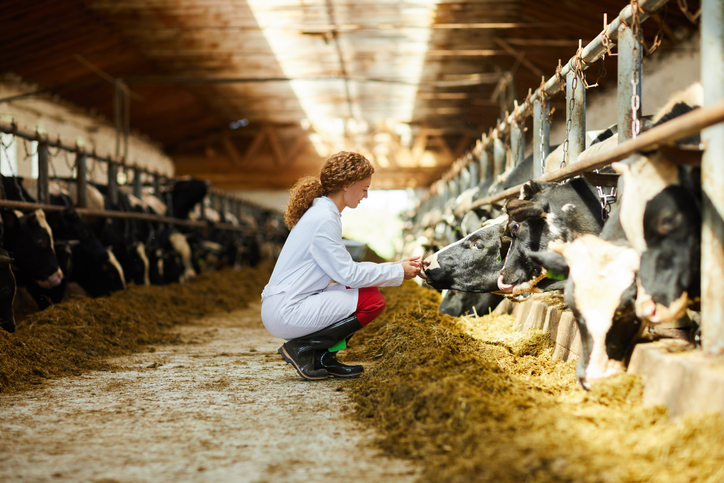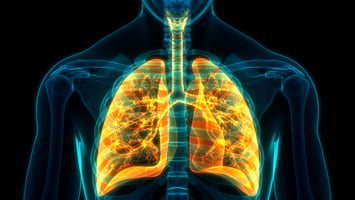Aligned with Broughton’s belief in realizing harm reduction, Principal Scientist, Frazer Lowe discusses a scientific paper that he co-authored on ‘Oxidative stress Leading to Decreased Lung Function'...
New challenges for the animal healthcare Industry: how do we, as a sector, solve issues such as high yields, drug resistance, and sustainability?
Pharmaceuticals

Jan 20, 2023 | Published by Broughton
Pharmaceuticals, Animal Healthcare
In this blog, we will look at some of the key challenges facing animal health manufacturers and highlight why building a long-term relationship with the right testing partner is vital for your business to succeed.
2023 brings a brand-new round of conferences, many being held for the first time in three years due to the COVID pandemic; Broughton is getting ready to attend the Annual Animal Health Distributors Association (AHDA) conference in London on January 23rd & 24th. The conference brings together distributors, manufacturers, and industry leaders in the animal health industry to share knowledge, discuss the latest trends, and gain insight into innovations in the sector.
Here at Broughton, we have a long history in animal healthcare; since the company was created in 2006, testing for animal health products has been at the core of our analytical business. Our first-ever customer was from the animal health sector, and they are still working with us today. Our Founder, Dr. Paul Moran and CEO, Chris Allen, both have considerable experience in this field and have applied that expertise to assist animal health-related clients for over twenty years.
Animal healthcare is not only of utmost importance for animal welfare but ensuring drugs are delivered correctly to animals is also crucial for human health. For instance, farm animals (kept for human consumption) are treated with pharmaceutical drugs to ensure good growth and maintain health standards. These essential drugs are often distributed and administered to these animals via their feed, but the active ingredient can sometimes be harmful if it enters the human food chain and is consumed by people. The challenge of balancing effective animal drug dosing while protecting human health and environmental contamination makes working within animal health testing both complex and extremely interesting for scientists.
Determining stated withdrawal is crucial for ensuring that medicated animals are fit for human consumption. “Stated withdrawal” refers to the time following a specific medication or treatment administered to an animal before it can be considered safe for consumption or breeding. This time is called the “withdrawal period” or “withholding period” and is determined by the manufacturer or regulatory authorities based on the product’s safety data.
During the withdrawal period, the animal’s body must eliminate all traces of the medication or treatment before producers can use the animal safely for food or breeding purposes. The withdrawal period can vary depending on the type of medication, the animal species, and the delivery method. Following the stated withdrawal period is essential to avoid any medication residue or treatment that could harm human or animal health.
Our scientists are passionate about utilizing their years of experience to assist animal healthcare product manufacturers with determining stated withdrawal and other challenges such as product stability and shelf-life. Our state-of-the-art GxP laboratory facilities, extensive on-site stability storage chambers, and experience in QC batch release testing have made us a partner of choice in this industry.
“Having personally spent many years in this sector and having built a business serving many animal health clients, at Broughton, we have a deep understanding of the challenges faced by scientists in animal healthcare manufacturing. Due to complexities around product matrices and dosage forms, animal health products bring numerous challenges not often associated with human pharmaceuticals. These are issues we deal with and overcome for our clients regularly. This is a rapidly evolving sector in the pharmaceutical industry due to increased awareness of the impact of animal drugs on human beings and the environment. Regulators will continue to increase their scrutiny and tighten regulations, so manufacturers need to stay up-to-date to future-proof their business.” -– Chris Allen, Broughton CEO.
Animal healthcare will continue to face new challenges as the demand for affordable food increases. The animal-based food industry is under pressure to produce higher yields of meat, milk, and eggs. This could lead to increased use of antibiotics, hormones, and other growth-promoting agents, which can negatively impact animal health and welfare, the environment, and the consumers who eat these products. Furthermore, the increased use of antibiotics in animal agriculture can lead to the development of antibiotic-resistant bacteria, which can be transmitted to humans.
The challenges faced by the industry are complex and interrelated; addressing them will require a multifaceted approach that includes changes in production practices, research, analytical testing, and regulatory policy. To develop and implement sustainable solutions, the animal healthcare industry must work closely with all its stakeholders, from farmers, pharmaceutical manufacturers, regulators, analytical testing facilities, and QP practitioners. Conferences such as the Annual Animal Health Distributors Association (AHDA) are vital to bringing the industry together and ensuring it can address the collective issues we face.
Broughton will be attending AHDA 2023. To book a meeting with us at the event or schedule an introductory conversation to understand how Broughton can assist your animal healthcare analytical testing needs, please contact us here:



